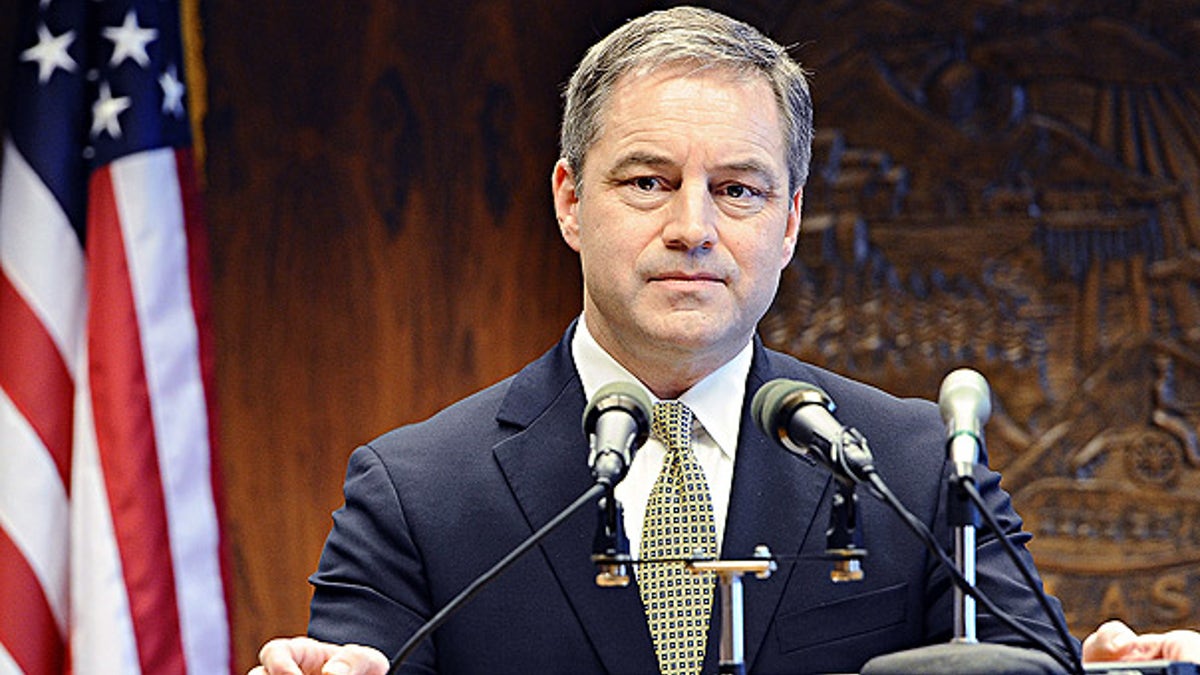
Jan. 20: Alaska Governor Sean Parnell during a news conference in Juneau. (AP)
JUNEAU, Alaska -- Alaska Gov. Sean Parnell said Thursday he has asked his attorney general to advise him on whether implementing and enforcing the federal health care overhaul would put Parnell in violation of his oath of office.
A federal judge in Florida this week struck down the law as unconstitutional in a case joined by 26 states, including Alaska. A major point of contention is a provision requiring citizens to buy health insurance.
Parnell told reporters that he took an oath to support and defend the constitutions of the United States and Alaska. While the Republican governor concedes the issue is expected to be decided by the U.S. Supreme Court, he said he has a duty to uphold the law and wants Attorney General John J. Burns to advise on what that duty is after the Florida ruling.
"I'm caught between a federal government that says, 'You must pursue this, you must pursue this,' and I have the duty to uphold the rule of law," he said.
Parnell gave no timetable for receiving Burns' opinion.
Two federal judges have upheld the law, and another ruled the insurance mandate unconstitutional but did not strike down the rest of it. Parnell said the bottom line is: "The state is a party to an action where that law was declared unconstitutional. That's the difference right now."
Before the judge's ruling, Parnell said he didn't "out of hand" reject all provisions of the law. He said he had pledged to review each aspect and deadline individually.
But he said he did not pursue "anything" related to the individual insurance mandate, which he said would have undermined the state's position in the lawsuit and his belief that the provision is unconstitutional.
"And now, of course, the judge has said that that individual mandate is so closely tied with almost every provision," he said. "So, again, I'm asking, I need some clarification on what the effect of the lower court's ruling is."
The mandate would take effect in 2014.
State Sen. Hollis French, an outspoken supporter of the health care law, said Parnell is "overreacting to a ruling of just one of 600 federal judges."
French, who unsuccessfully sought the Democratic nomination for governor last year, said provisions such as allowing for children to remain on their parents' policies until they're 26 years of age, or not letting insurance companies drop people because they get sick, are threatened if the law is disrupted.
"The real effect on the ground is, Alaska consumers will be hurt if we don't embrace some of these good reforms," said French, of Anchorage.
In the past, he said, lower court judges have found things like the federal minimum wage unconstitutional, decisions later overturned by the U.S. Supreme Court.
"One lower court ruling shouldn't excite us too much," he said.




